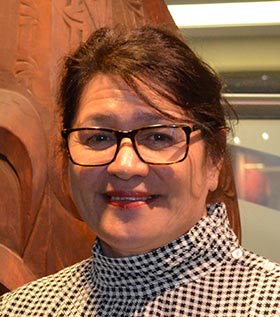
NZNO kaiwhakahaere Kerri Nuku says nurses must make their voice heard in upcoming health reforms and take a strategic approach to their work – in Aotearoa, and the world.
Re-elected unopposed in September, Nuku said there were huge opportunities in the year ahead but just how much could practically be done was the “million-dollar question”. It would be important the organisation did not spread itself too thin.
Upcoming health reforms would be at the top of list of these issues for many people, she said.
The reforms, announced by the Government this year, would be in place by mid-2022. They would be the biggest shake-up of the health system in two decades and see the consolidation of all 20 district health boards into a single entity, Health NZ.
A Māori Health Authority with its own power to commission services would be created.
Nuku said where nursing would sit within the system would be key. And the question of whether nursing had autonomy and a voice in this new world could be the problem, she said.
Reform transition unit head Stephen McKernan told the NZNO 2021 conference that reforms were influenced by the Waitangi Tribunal inquiry into health outcomes for Māori (Wai 2575).
But Nuku said if that were the case then witnesses who gave evidence to Wai 2575 should have been invited to help with the changes.
“Some… service providers have been invited to the table, but not any of the nurses who are – as we keep hearing – the backbone to the health-care system.”
This meant nurses had to trust that those providers could represent nurses’ concerns. “Our members don’t believe that they’ve heard our wishes authentically from ourselves, but from others.”
Nuku said Te Rūnanga worked hard to understand the strategic long game of political decision-making: because political and funding imperatives drove decisions.
The wider community recognised the value of nurses and perhaps assumed they were involved in this decision-making. ‘The reality is we’re not.’
Nuku said work was continuing with Waitangi Tribunal kaupapa inquiries. She was part of the group looking at tribunal recommendations into keeping Māori children and future generations safe.
Māori rangatira Moana Jackson would often say he wanted to be the best ancestor he could possibly be, Nuku said.
Nobody wanted to leave behind a legacy that didn’t include trying to challenge the system that was uplifting Māori children, she said. The drive to create a better social service for children would continue this year.
Whānau and nurses would give evidence in the likes of the Mana Wahine tribunal inquiry (into Treaty breaches against Māori women), and the second phase of the tribunal’s health inquiry.
Nuku said Te Rūnanga was building international strategic alliances, to gain a global voice for the organisation.
She said the Indigenous Nurses Aotearoa Conference had always invited other indigenous groups to the hui. “That collective solidarity, nationally and internationally, is important to us. So now we’re going to advance that forward: blow apart some of those international structures.”



